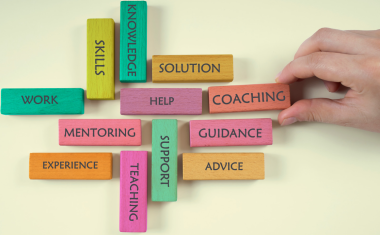Coaching and Mentoring with Emotional Intelligence
Listen To Understand
You must listen to understand the mentee or Coachee’s perspective without interrupting or jumping to conclusions. Focus entirely on the person speaking, nod to acknowledge understanding, and summarise what they’ve said to ensure clarity. Listening to understand builds a deeper level of understanding, validates the other person’s experiences, and makes them feel valued.
Ask Open-Ended Questions
Encourage self-reflection and deeper thinking by asking questions that require more than a simple ‘yes’ or ‘no’ answer. Use questions like, “What do you think is the biggest challenge here?” or “How do you feel about that decision?” to invite discussion and introspection. Open-ended questions help the Mentee or Coachee explore their thoughts and feelings, leading to more insightful and meaningful conversations.
If developing emotionally intelligent leaders is your focus, you might find my bespoke leadership development programmes helpful.
Tailor Your Approach
Adapt your Coaching or Mentoring style to the needs, personality, and emotional state of the individual. Pay attention to their preferred communication style and emotional responses. Some individuals may need more encouragement, while others may benefit from more direct feedback. A tailored approach ensures that your support is effective and resonates with the individual.
Help Set Meaningful Goals
Assist the mentee or coachee in setting realistic, emotionally compelling goals that align with their personal values and professional aspirations. Use SMART (Specific, Measurable, Achievable, Relevant, Time-bound, Evaluate, Review/Readjust) goals to structure the process. Regularly revisit these goals and adjust them as needed, based on progress and emotional engagement. Clear, meaningful goals provide motivation and a sense of purpose, helping the individual stay focused and committed to their development.
Final Words
Coaching and Mentoring with Emotional Intelligence transform the leader-team relationship from transactional to transformational. When leaders bring empathy, self-awareness, and adaptability into their coaching approach, they not only support skill-building but also foster trust, motivation, and loyalty. This Emotionally Intelligent approach helps individuals thrive, equips teams to handle challenges more effectively, and contributes to a culture of continuous learning.
As you incorporate Emotional Intelligence into your Coaching and Mentoring practices, remember that growth is a journey for both you and your team members. By prioritising genuine connection and emotional insight, you’ll empower others to reach their full potential and create an enduring, positive impact on your organisation.



